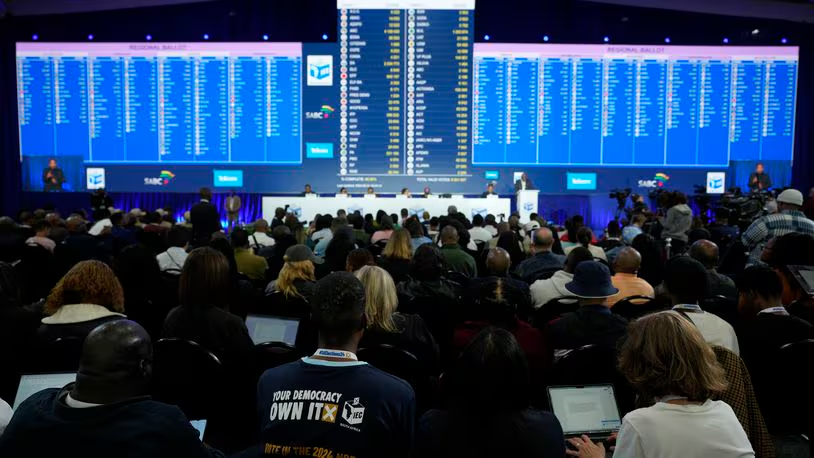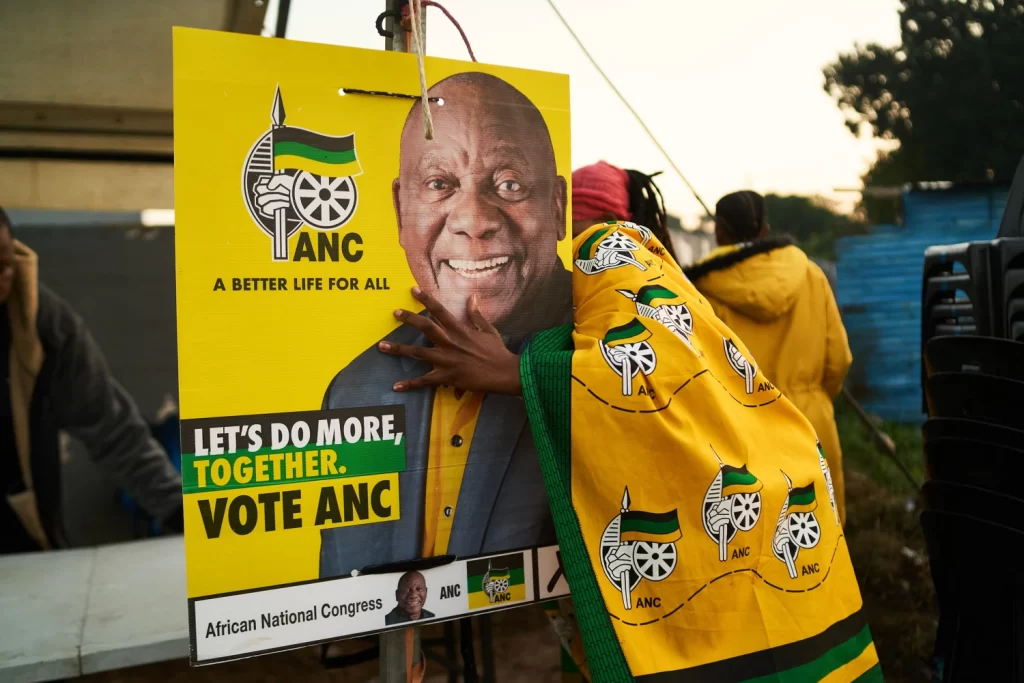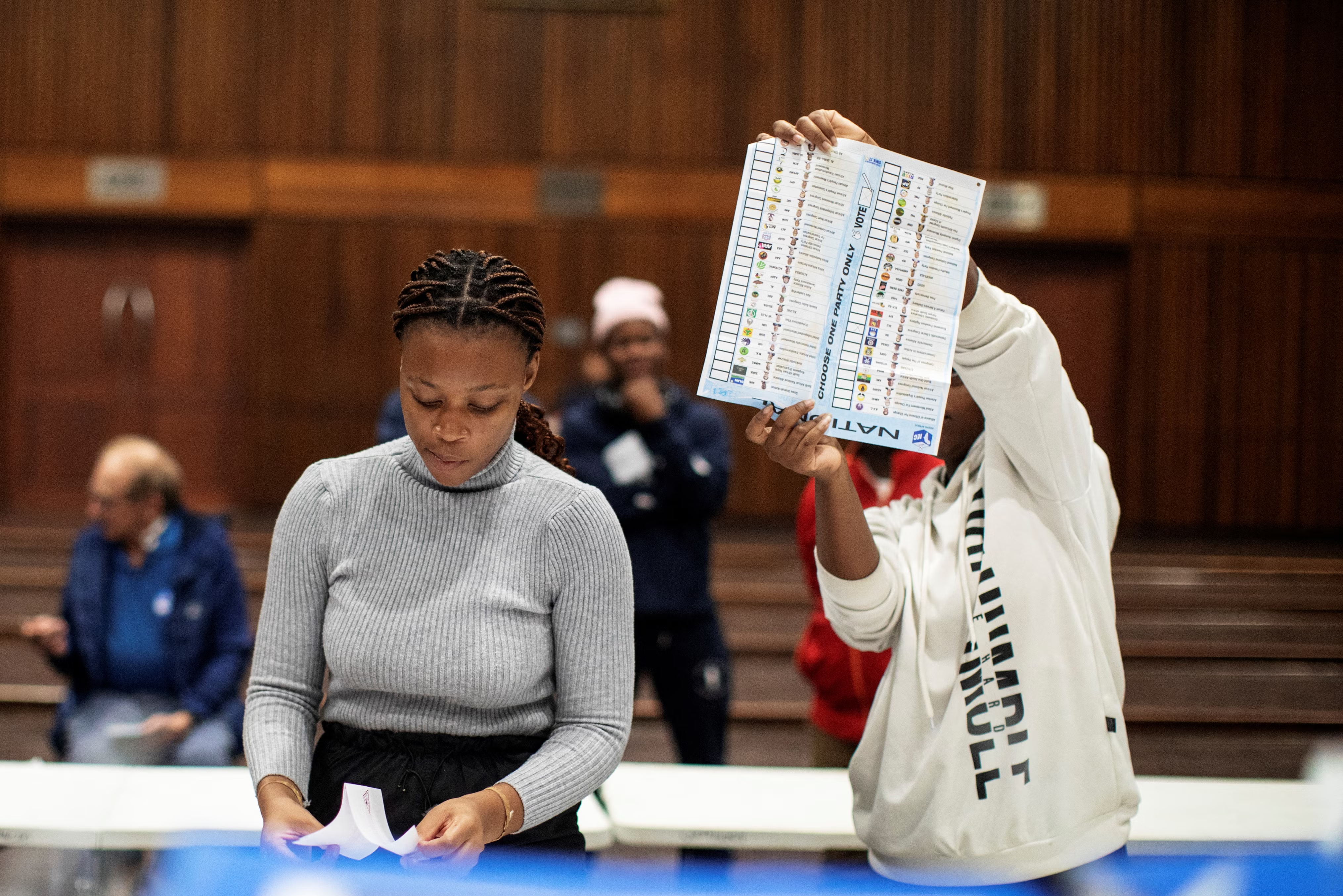In a historic election result, the African National Congress (ANC) party lost its parliamentary majority for the first time since the end of apartheid 30 years ago. This significant shift in South Africa’s political landscape was confirmed on Saturday, signaling a new direction for the nation.
With over 99% of votes counted from Wednesday’s election, the ANC received just over 40% of the vote, falling short of the majority it has held since the pivotal 1994 all-race vote that ended apartheid and brought Nelson Mandela to power. While the final results are pending formal declaration by the independent electoral commission, it is clear the ANC will not surpass the 50% threshold.

The electoral commission had initially stated it would formally declare the results by Sunday, though this may happen sooner.
Opposition parties have hailed the outcome as a groundbreaking development for a country grappling with severe poverty and inequality. Despite its diminished majority, the ANC remains the largest party and will likely need to form a coalition to retain governance and reelect President Cyril Ramaphosa for a second term. The South African president is elected by Parliament following national elections.
“The way to rescue South Africa is to break the ANC’s majority and we have done that,” said John Steenhuisen, the leader of the main opposition Democratic Alliance (DA).

The path forward is complex for Africa’s most advanced economy, as no coalition has yet been solidified. The DA secured around 21% of the vote, while the newly formed MK Party of former President Jacob Zuma, who has since turned against the ANC, garnered just over 14%. The Economic Freedom Fighters (EFF) trailed with slightly more than 9%.
More than 50 parties participated in the election, many receiving minimal vote shares. The DA and MK Party are the most viable coalition partners for the ANC, considering the significant gap from a majority. The urgency to form a coalition is heightened as Parliament must convene and elect a president within 14 days of the official declaration of final results, prompting a flurry of likely intricate negotiations.
Steenhuisen expressed the DA’s openness to coalition talks. However, the MK Party stipulated that any agreement would require the removal of Ramaphosa as ANC leader and president, highlighting the intense political rivalry between Zuma, who resigned amid corruption allegations in 2018, and Ramaphosa, his successor.
“We are willing to negotiate with the ANC, but not the ANC of Cyril Ramaphosa,” said Nhlamulo Ndlela, MK Party spokesperson.
Both the MK Party and the far-left EFF advocate for nationalizing parts of the economy. The DA is perceived as a business-friendly party, and analysts suggest an ANC-DA coalition would be more favorable to foreign investors, although its political feasibility is uncertain given the DA’s longstanding criticism of the ANC.
An ANC-DA coalition “would be a marriage of two drunk people in Las Vegas. It will never work,” stated Gayton McKenzie, leader of the smaller Patriotic Alliance party, to South African media.

Despite the uncertainty, opposition parties celebrated the new political scenario as a vital change for South Africa, a nation of 62 million that, while being Africa’s most developed, is also one of the most unequal.
South Africa suffers from pervasive poverty and extremely high unemployment rates, with the ANC struggling to improve living standards for millions. The official unemployment rate stands at 32%, one of the highest globally, with poverty disproportionately affecting Black people, who comprise 80% of the population and have traditionally supported the ANC.
The ANC has faced criticism and voter backlash for failing to provide basic government services, leaving many without essential amenities like water, electricity, or proper housing.
Nearly 28 million South Africans were registered to vote, with turnout expected to be around 60%, according to the independent electoral commission.
Credit: NBC



